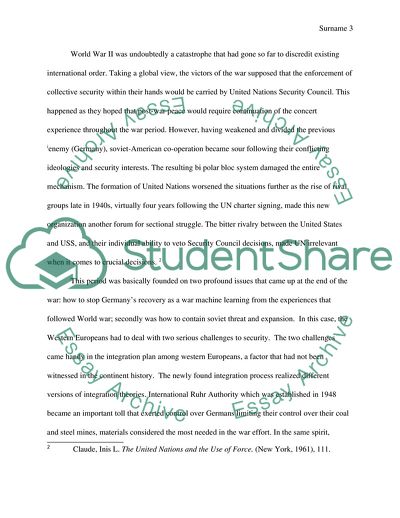Cite this document
(Approach towards International Security during the Cold War Period Essay Example | Topics and Well Written Essays - 4000 words, n.d.)
Approach towards International Security during the Cold War Period Essay Example | Topics and Well Written Essays - 4000 words. https://studentshare.org/politics/1827249-what-was-the-main-approach-towards-international-security-during-the-cold-war-period
Approach towards International Security during the Cold War Period Essay Example | Topics and Well Written Essays - 4000 words. https://studentshare.org/politics/1827249-what-was-the-main-approach-towards-international-security-during-the-cold-war-period
(Approach towards International Security During the Cold War Period Essay Example | Topics and Well Written Essays - 4000 Words)
Approach towards International Security During the Cold War Period Essay Example | Topics and Well Written Essays - 4000 Words. https://studentshare.org/politics/1827249-what-was-the-main-approach-towards-international-security-during-the-cold-war-period.
Approach towards International Security During the Cold War Period Essay Example | Topics and Well Written Essays - 4000 Words. https://studentshare.org/politics/1827249-what-was-the-main-approach-towards-international-security-during-the-cold-war-period.
“Approach towards International Security During the Cold War Period Essay Example | Topics and Well Written Essays - 4000 Words”. https://studentshare.org/politics/1827249-what-was-the-main-approach-towards-international-security-during-the-cold-war-period.


